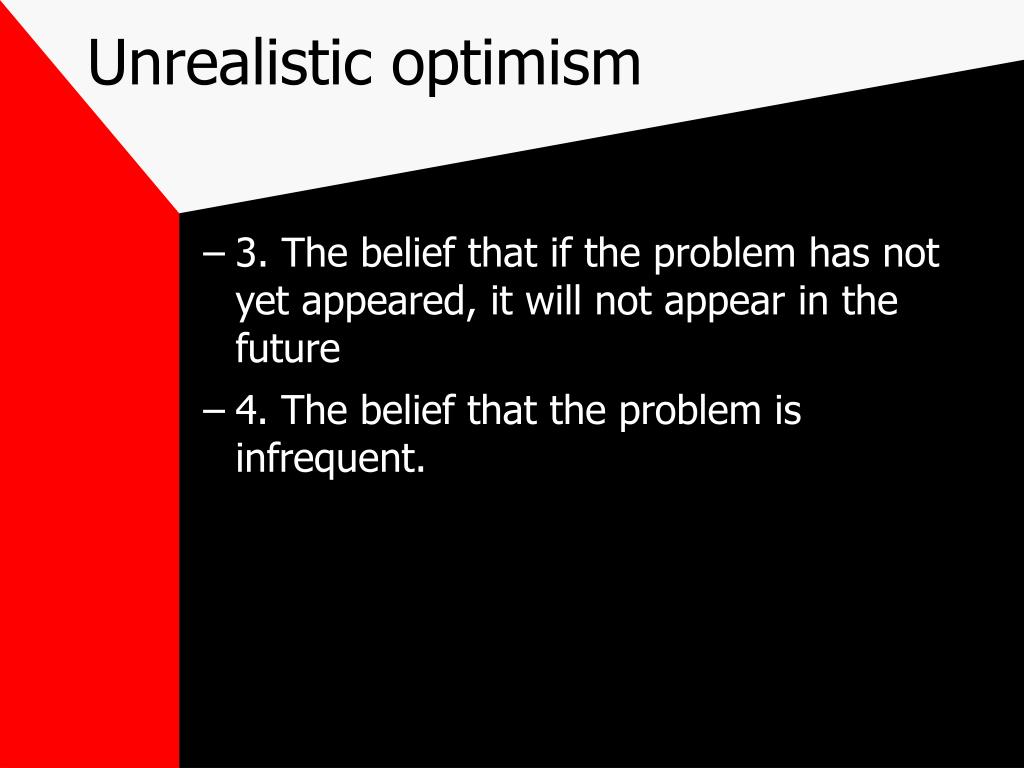

Strategic optimism (Ruthig et al., 2007) is a domain specific denial of risk based on a belief in having control.Situational optimism refers to the general expectations of a good outcome in a specific context.Comparative optimism (Radcliffe and Klein, 2002) introduces relativity of expectation of good outcomes for the self compared with a similar other.Bad events are, by contrast, regarded as impermanent, non-pervasive and due to causes external to the self. OptimistsĪttribute good events with permanence (likely to recur), pervasiveness (the ‘goodness’ will extend to other future events) and internality (I caused it and can cause it again). Optimism as attributional style views optimism as a style of reasoning about cause (Buchanan & Seligman, 1995).If adversity is perceived as unpleasant at the time but sufficiently replete with opportunity for personal growth and learning as to be beneficial overall, this element of non-congruence between actuality and expectation is reduced or disappears. The question is whether it is irrational to view adversity as anything other than bad. It also refers to the presumed non-congruence between the inevitability of adversity and the anticipation of experiencing life as more good than bad. The term ‘unrealistic’ in unrealistic optimism (Weinstein, 1989) describes the objective mismatch between the expectations of dispositional optimism and actuarial evidence about probability of life events occurring.As a personality trait, it is presumed to be stable with little scope for change and is alternatively described as big optimism (Peterson, 2000). Dispositional optimism is defined as a global expectation that more good (desirable) things than bad (undesirable) will happen in the future (Scheier and Carver, 1985).In order to gain a better understanding of optimism, it is important to consider the different types of optimism that researchers consider today. Methodologies, research problems and the influence of publication bias, possibly itself the product of optimism, will be discussed followed by a few examples of beneficial outcomes arising from the application of research on optimism.

This essay will examine definitions and components of optimism as a background to understanding the mechanisms by which it acts and then present research findings about benefits and harm.

A substantial body of research now supports this but confirms that optimism is not without risk.

Work by Tiger (1979) suggested that optimism is prevalent because it has adaptive utility. Helen Keller’s words reflect the popular upbeat concept of the word which has been gaining ground since the 1960s as an increasing body of research has demonstrated a consistent tendency of healthy successful people to think in generally positive ways. doi:10.1037//0278-6133.14.2.‘Optimism is the faith that leads to achievement …no pessimist ever discovered the secret of the stars, or sailed to an uncharted land, or opened a new doorway for the human spirit’. Resistance of personal risk perceptions to debiasing interventions. Unrealistic optimism: east and west? Front Psychology. Shepperd JA, Klein WMP, Waters EA, Weinstein ND. Pantheon/Random House 2011.Ĭarver CS, Scheier MF, Segerstrom SC. The Optimism Bias: A Tour of the Irrationally Positive Brain. Optimism bias within the project management context: a systematic quantitative literature review. Unrealistic optimism about future life events.


 0 kommentar(er)
0 kommentar(er)
